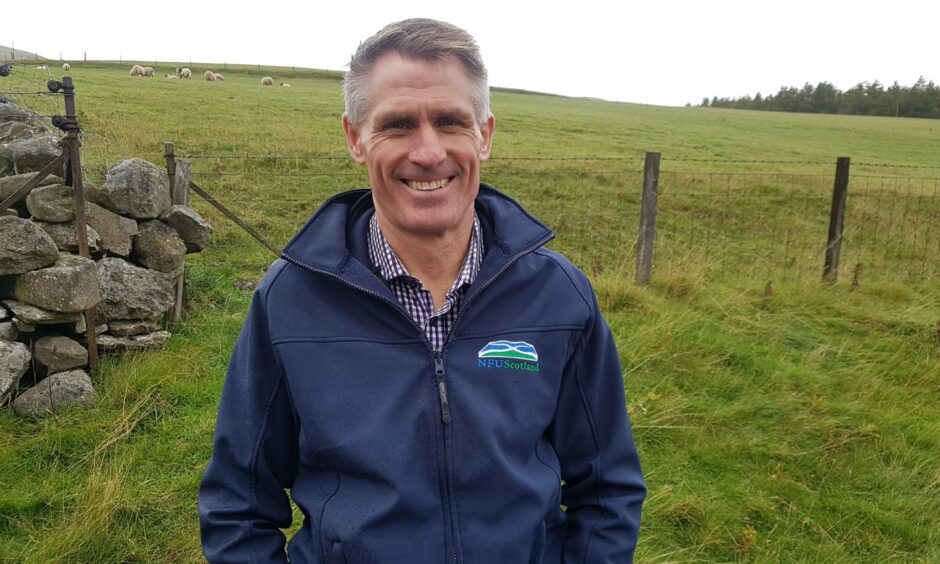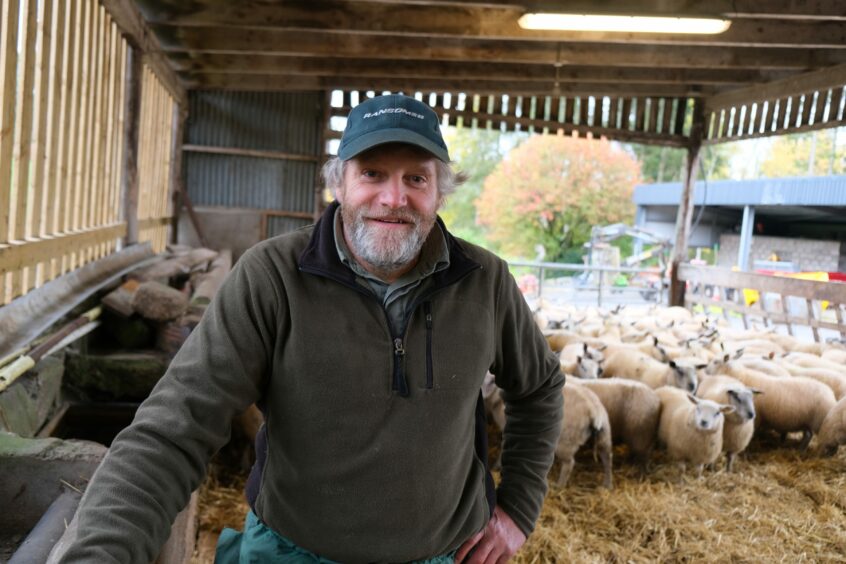Farmers and crofters have been advised to start preparing at once for the non-negotiable demands of Scotland’s future agricultural policy.
NFU Scotland leaders told members at a webinar on the consultation for a new national farm policy that while the detail is still to be worked out, the goals of sustainable food production, meeting climate change targets and arresting biodiversity decline are already clear.
The union’s director of policy, Jonnie Hall told a large audience: “We need to prepare for change now.
“It’s about a journey and getting every farmer and crofter in Scotland started on that journey so that change isn’t so dramatic to become impossible and we’re able to adapt to what’s required of us in 2024-25 and onwards.
“Kick starting change is essential.”

NFUS director of policy Jonnie Hall.
Both Mr Hall and union president Martin Kennedy urged members to respond to the Scottish Government’s Agricultural transition in Scotland- first steps towards our national policy consultation which closes on November 17 to ensure the industry’s voice is heard.
Next year the Scottish Government will set out its proposals for a future Agriculture Bill in the Scottish Parliament in 2023.
Mr Hall said: “We need to be in a position where we influence that as best we can and get the outcomes that work not just for farmers, but the whole of rural Scotland.”
He emphasised that the government had to be held to account on its commitment to a “just transition” to meeting ambitious net-zero targets.
“Initially we need measures that will help to inform farmers and crofters and thereafter we need measures that will enable change to be put into practice,” he said.
He pointed out that the latest Programme for Government commits to “conditional” farm support, with half of all funding for farming and crofting shifting from unconditional to conditional support.
“Conditional support payments will change practices and achieve the outcomes we want to achieve.
“For the avoidance of doubt, it’s about meeting three things simultaneously: sustainable food that’s produced to the highest standards, contributing to and meeting climate change targets that are set in legislation, and arresting biodiversity declines and restoring nature.
“And it’s non-negotiable. We have to deliver on it.”

